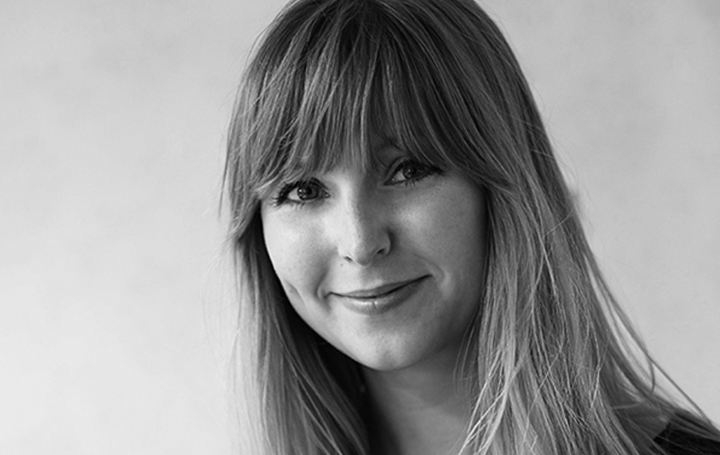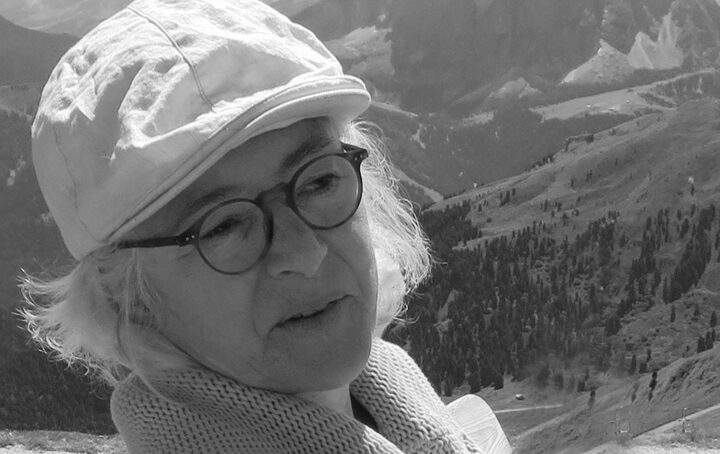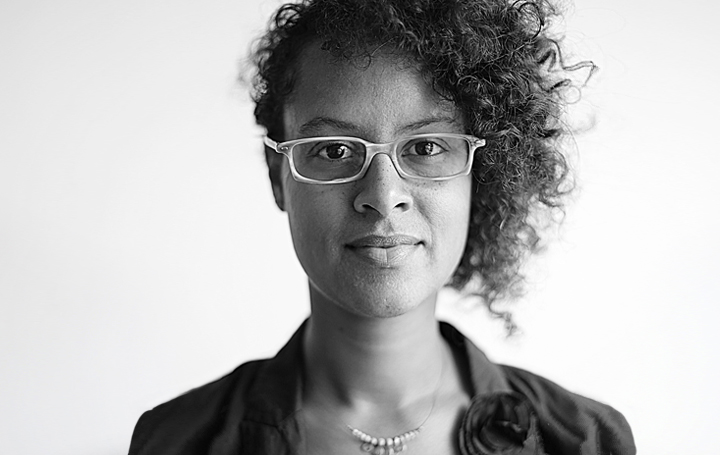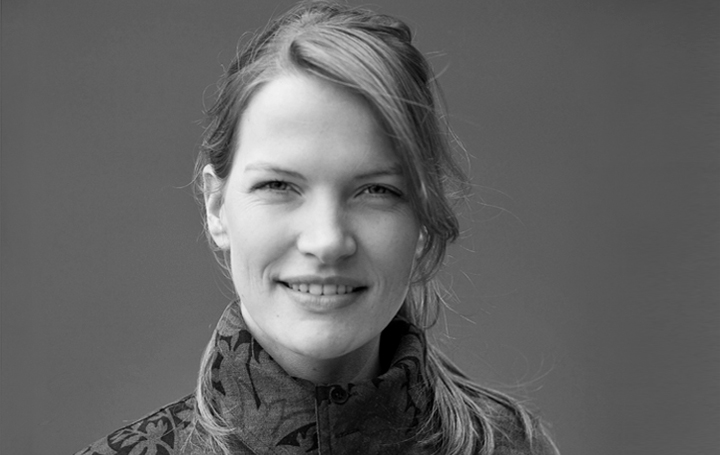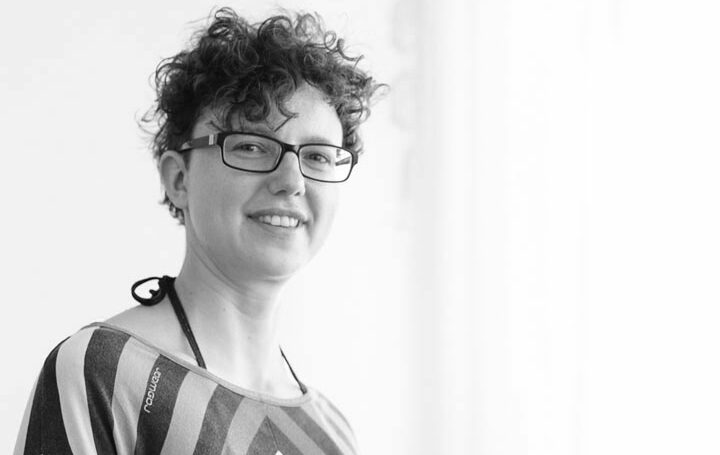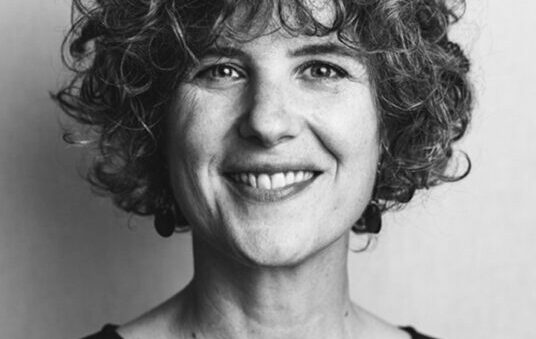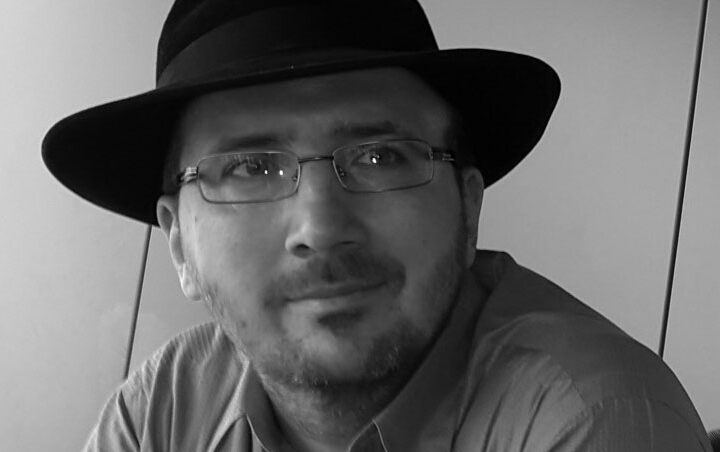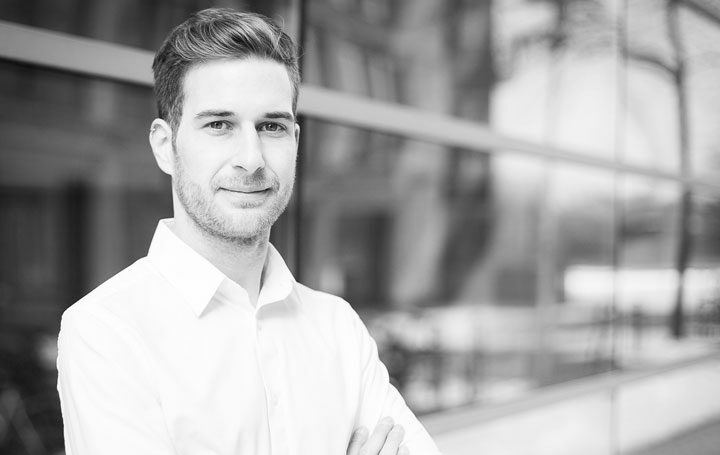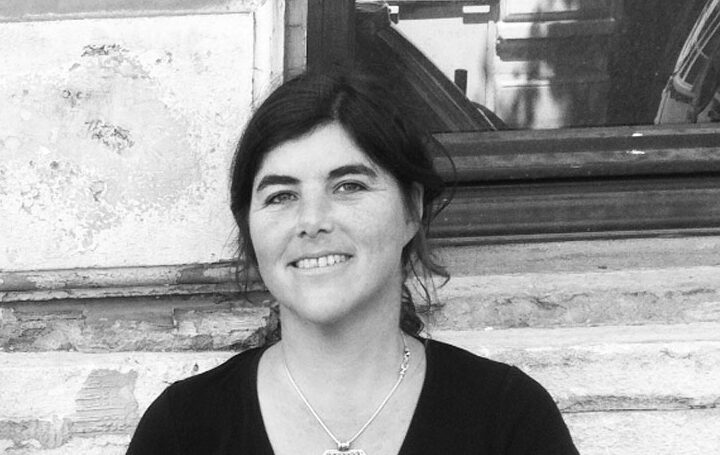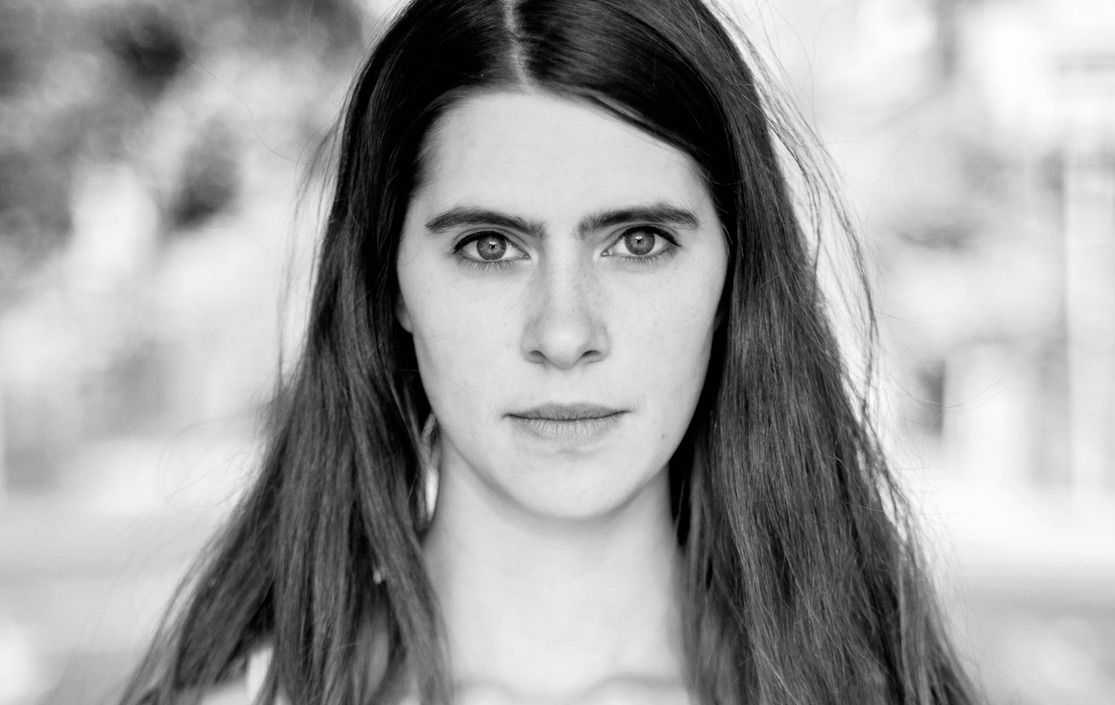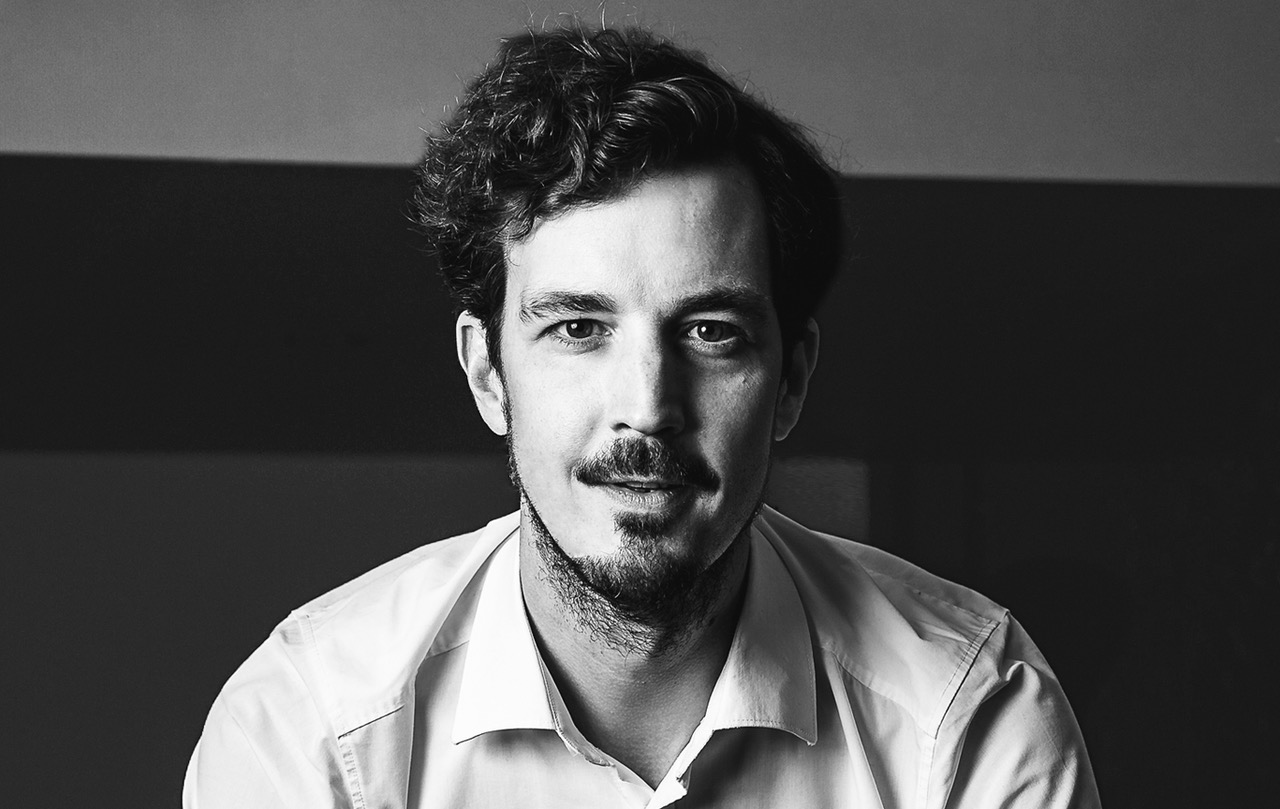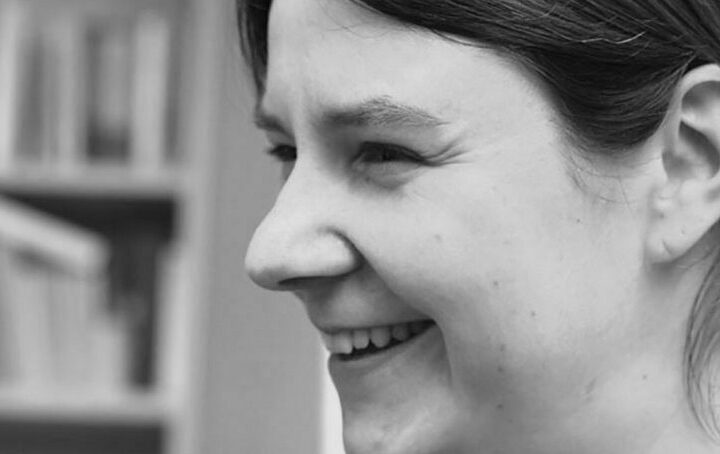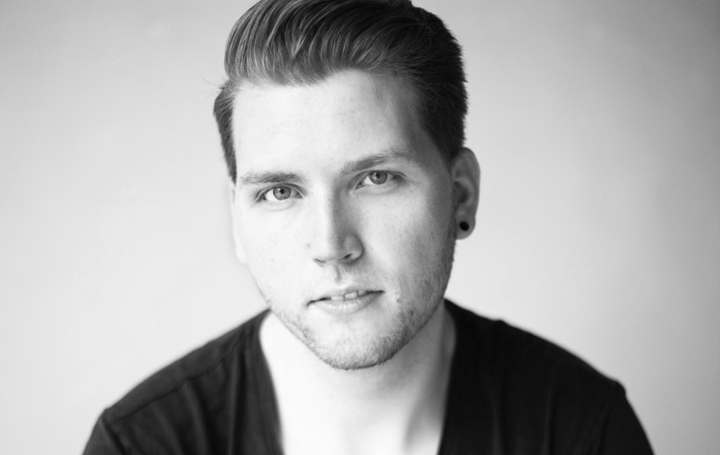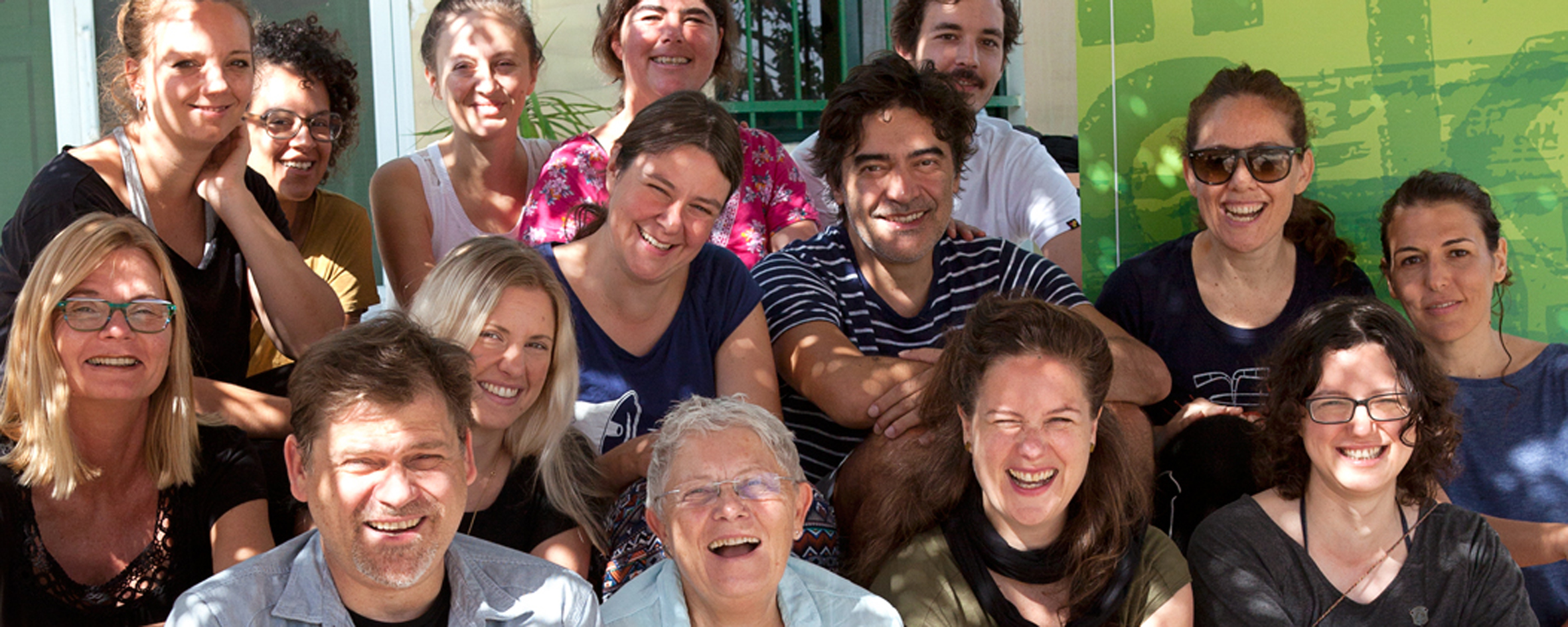
Eco Design Forum – Impressions
29. November 2016experiences / Impressions 2
14. Dezember 2016Going on a trip together is always an adventure and you experience a lot. What happens when designers and artists from four different countries go on a trip together? The five-day programme with presentations, excursions and a good amount of exchange – first in Tel Aviv, Israel and then in Auja, Palestine – really made an impression on everyone and gave rise to a lot of questions.
Marc
Upcycling designer / Cologne, Germany
I don’t know if I can even evaluate the experience already. There were so many different structures, levels and aspects that I have to process or that have to be reflected on. Besides the designer aspects of the experience, the input that we got in the workshops and the political conflicts were dominant. Even if it wasn’t my intention, conversations often turned political, regardless of where the person came from, be it Israel, Germany or Palestine.
The political conflict is really palpable and it definitely brought up a new dimension to design – at least to the way design is classically understood in Germany: Understanding is also a form of communication design that holds within it different levels in its many facets. In this respect, I gained a whole new field of experiences and other cultural influences, as is common on such a trip. But it will take some time to process everything, to understand the complexity of the conflict and be able to draw conclusions.
I definitely gained experience that I can use in my work back in Germany, where things just work differently because we live in different structures. Here is an example: at reditum, we design furniture from used material, so we upcycle. Therefore, we need access to the used material that would usually by recycled or re-used. That means that we often can’t access this material because the people that want to get rid of the material have signed framework agreements, even if upcycling is the most ecologically and economically practical solution in a lot of cases.
But in Israel, there isn’t a recycling programme. A lot of material just lands on the street. There is, however, an upcycling scene, which is very small because the concept isn’t very well-known. An Israeli participant told me the following story: “In my neighbourhood there are mounds of cans and some kind of wooden packaging that you could easily use again. But no one does. It just lands in some landfill.” By the end of the conversation we had already come up with some initial ideas about what to do …
I think the conversations that we had outside of the workshops were also often inspirational for both sides. In my opinion, one of the participants said it best: “It’s not about solving the whole problem all at once. It’s about creating moments of emotion and with that, repeatedly putting a positive emphasis on things.” This statement, which was in reference to the political situation, can be adapted to my creative work in a trivial way. A piece of furniture doesn’t have to be all-encompassing but it should definitely be functional and also help create great moments.
Pinar
Designer, change agent and creative facilitator / Istanbul, Turkey
It was a great experience regarding different people from different cultures. Designers coming together and having a lot of exchange. It was a very interesting experience for us to meet in a conflicting environment, because as designers we are thinking in different ways: we can see the problems and we can think about creative solutions. It gives us the possibility to look deeper into the issues around. As designers it is interesting to observe different cultures especially in a conflicting environment. It was great to visit different places in Israel and Palestine and we have seen how people and designers interact with their problems. This was a very good experience for us.
We have a lot of issues in Turkey, too. They are considered not only by the government and it is obvious to see that the political party and the political stakeholders are coming short to build solutions. Designers can see a lot of problems and think creative. It is inspiring to see here relationships between social and environmental issues and how designers can take part in these. This is something what we will take with us from now on. Also the environmental psychology lecture was great and I was impressed and we can take that concept more into our work, because there is a great area where people are making research and have some results and we can use these scientific findings in our work as well. We always have these questions why people are behaving like this. What we take back with us is also about having courage as designers.
Tuna
System designer and sustainability strategist / Istanbul, Turkey
I have seen a lot of trash on the streets, especially in the Palestinian part. But the trash is not a result of what we are expecting of eco-sensitiveness, it is a result of something much deeper. It is a social issue, because there is no alternative, there is no hope for these guys. And when you see the interaction of ecology and society, then you can easily figure out what are the sustainable points. We are not talking about ecology, you cannot separate it into one room, ecology cannot be fragmented. It has to be considered in a context and that context can be created by a society or a culture or whatever. This experience we had was possible with ecolised workshops. We have been able to know some people from both sides, excellent personalities, great friends and I think big designers and artists. We have seen their work and it’s amazing what they are doing here under these circumstances. And also the Israeli part. They are doing their best to create a new culture, a new paradigm. Thanks for the opportunity to make all this possible. We are glad to be here.
Adi
Head of design / Jerusalem, Israel
I had a very good time participating in the ökoRAUSCH ECO design workshop that took place in Israel, October 2016. It was very nice and uplifting to meet other designers and artists dedicated to the issues of ecological design. Seeing the same issues brought up to discussion around the world gives me some hope regarding our joint future. Looking back at the different aspects of ecological design discussed in the workshop, two specifically interest me as they also relate to research I am conducting as part of my MA studies at Tel Aviv University.
1) What is eco design? As the term ‘ecological’ is very wide, there are several interpretations to this issue. These vary from reuse of artifacts and the reduce of consumption to full system designs based on a cradle to cradle ideology. When thinking of these on the spectrum, I always try to consider if all have a positive result towards the environment. As Laura Henn suggested in her talk, people engaging in miner actions towards the environment may feel the little they are doing is more than it actually is and therefore they may not continue towards the larger and more important issues. Interviewing designers in Israel, I many times hear about manufacturing plants that recycle their waste while the products themselves are very wasteful. As these designers do recycle their waste, they feel like they have done enough and therefore do not try to reduce any further. As this is the case, I cannot stop the thought that maybe doing a little good is actually doing a lot of bad. So should we only aim to maximize our actions towards a cradle to cradle system? Many will say that we cannot do all at once and the change must be gradual. I agree with this statement but feel that we are not progressing fast enough. I feel we must take the ecological discussion one step forward and start designing smarter, inclusive systems with the environment in mind.
2) Do we, as artists/designers have enough power to make the change by ourself? This is the second issue that intrigues me when it comes to designers/artists and the environmental challenges that we are facing. Many times, we, as artists/designers, along with our creativity, think we have the ability to make the change by our own. Unfortunately, again and again we find the boundaries of our culture, education and economic systems. I believe we need to act in this field but cannot do it alone. We need to also include education, regulation and legislation. We must find ways to work with all of these together in order to make a real change to our system.
I want to thank the organizers of the workshop for the opportunity to deepen the discussion in this field and will be happy to participate in future events.
